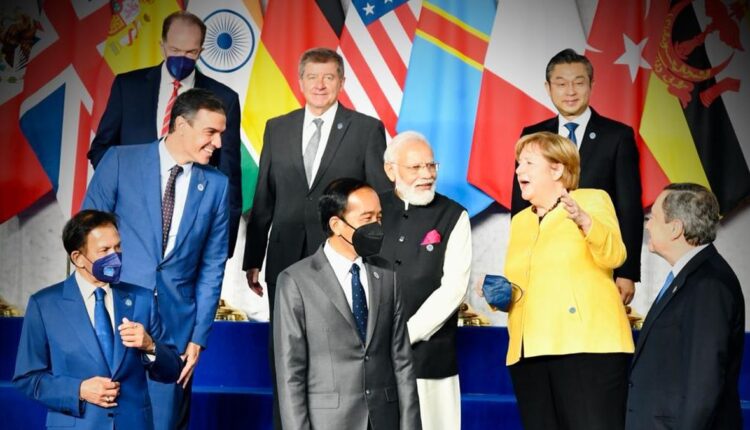G20 Summit Momentum for Indonesian Investment and Tourism Opportunities
By: Made Prawira )*
The implementation of the 17th G20 Summit will provide many benefits to the community. The main advantage is that the success of the G20 Summit brought investment opportunities and boosted tourism affected by the Covid-19 pandemic.
The pandemic has made the situation in Indonesia change drastically and the government is trying hard not to fall into a terrible economic recession. To prevent state bankruptcy, one way is to continue development, and the capital is from foreign investors. This system is considered suitable because it is mutually beneficial and Indonesia gets an injection of new capital to continue development.
When there are foreign investors who come of course they come for various reasons. One of them, they believe that Indonesia is a potential market for their products. Then, investors also need to see with their own eyes how the situation in Indonesia is, whether it is conducive to making investment land.
The existence of the G20 Summit Forum can open investment and tourism opportunities. The G20 Summit not only promotes Indonesian tourism, but also opens opportunities for investors to see Indonesia’s readiness for foreign investment. This was stated by the Head of the Communication Bureau of the Coordinating Ministry for Maritime Affairs and Investment, Andreas Dipi Patria.
In a sense, when there are many guests from representatives of the G20 participating countries, it can be a good promotion for Indonesian tourism. The reason is because they see the natural exoticism in this country, especially Bali (because it is the location of the G20 Summit). They can also see for themselves how the tourism sector in Indonesia is not suspended, and even continues to run according to health protocols, so it is safe to visit during the pandemic.
In addition to tourism, the G20 Summit can also trigger foreign investment opportunities in Indonesia. If there are representatives of foreign countries who come, then they can see for themselves how this country has a good market share, because the population is large (and tends to like shopping). There are also many potential areas to build investment factories and the costs are still affordable.
It could be that when they return to their country, representatives of the participants of the G20 summit confer with their officials, then decide to invest in Indonesia. The reason is because they believe in Indonesia which is considered a conducive land for investment. especially in Indonesia, there are many natural resources that can still be processed, of course with mutually beneficial cooperation agreements.
Not only countries participating in the G20 Summit, other countries can also be moved to invest in Indonesia, because they see the presidency of the G20 Summit as something positive. This means that Indonesia is trusted by the international community as a leader of high-class forums. This shows the Indonesian class who can work professionally.
In addition, the holding of the G20 Summit which began with Sherpa and Fast Track was considered a success, thus implying Indonesia’s seriousness in organizing international events. This means that the Indonesian government can be trusted because it works hard, so it can also be trusted for foreign investment.
Moreover, investment regulations in Indonesia were softened by the existence of the Omnibus Law, so that there was a cut in the flow and bureaucracy. Foreign investors are no longer bothered by long-winded regulations, but they can get an investment permit quickly (less than 2 weeks) and can be processed online.
The success of the G20 Summit has had a positive impact on Indonesia. One of them is the increasing confidence of foreign investors to invest in Indonesia, because they see the government has succeeded in hosting international events. In addition, foreign investors from G20 participating countries saw for themselves that Indonesia was very conducive to foreign investment.
)* The author is a contributor to Pertiwi Institute
